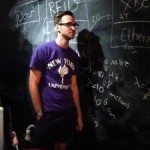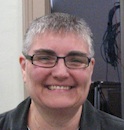Undergraduates in the Archives – Question 2
By
Kevin Gotkin, Benjamin Hebblethwaite, Timothy B. Powell, Suzy Taraba, Sarah Werner
April 2013
My experience in the archive directly contributed to my interest in graduate school, which is perhaps unsurprising when you think about the demands of archival work. The move from undergraduate to graduate study shares the guiding principles of archival work.
Read this ResponseThere were many benefits working with these undergraduates. The undergraduates selected to work for this project were balanced bilinguals who demonstrated robust literacy in English and Haitian Creole, which I was able to assess since they had taken my intermediate Haitian Creole course.
Read this ResponseThe most obvious benefit to Penn students is the opportunity to work on a project designed to be used by Native American community members and to hear the voices of elders. Penn, unfortunately, has no Native American faculty working in the field of American Indian studies, and the state of Pennsylvania has no Indian reservations.
Read this ResponseEngagement is a clear benefit. Many students are visibly excited, even awed, by their first visit to our Davison Rare Book Room, where the class sessions take place. The room is itself beautiful, echoing an eighteenth-century English gentleman’s library with glass-fronted bookcases and walnut paneling. The setting, combined with the intriguing materials presented, often inspires students to focus especially closely on the objects on display.
Read this ResponseI think the biggest benefit of bringing students into special collections through this course is that students own the process of discovery. In many undergraduate humanities courses, students learn about a subject through reading about it and, sometimes, conducting research on a topic of their choosing. But their research is rarely significant in terms of discovering new knowledge or generating a new perspective on something.
Read this Response



